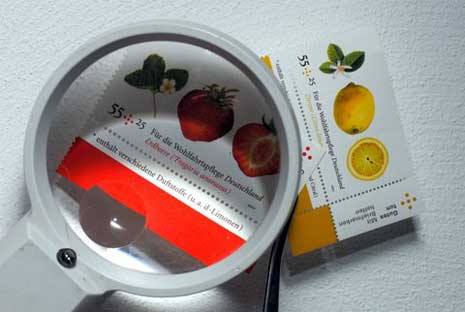Secret Chemicals Revealed in Celebrity Perfumes, Teen Body Sprays
President’s Cancer Panel report highlights threat from hormone-disrupting chemicals – many found in new fragrance study
San Francisco – A new analysis reveals that top-selling fragrance products – from Britney Spears Curious and Hannah Montana Secret Celebrity to Calvin Klein Eternity and Abercrombie & Fitch Fierce – contain a dozen or more secret chemicals not listed on labels, multiple chemicals that can trigger allergic reactions or disrupt hormones, and many substances that have not been assessed for safety by the cosmetics industry’s self-policing review panels.
The study of hidden toxic chemicals in perfumes comes on the heels of last week’s report by the President’s Cancer Panel, which sounded the alarm over the understudied and largely unregulated toxic chemicals used by millions of Americans in their daily lives. The President’s Cancer Panel report recommends that pregnant women and couples planning to become pregnant avoid exposure to hormone-disrupting chemicals due to cancer concerns. Several fragrances analyzed for this study contained multiple chemicals with the potential to disrupt hormones.
“This monumental study reveals the hidden hazards of fragrances,” said Anne C. Steinemann, Ph.D., Professor of Civil and Environmental Engineering, Professor of Public Affairs, University of Washington. “Secondhand scents are also a big concern. One person using a fragranced product can cause health problems for many others.”
For this study, the Campaign for Safe Cosmetics, a national coalition of health and environmental groups, commissioned tests of 17 fragranced products at an independent laboratory. Campaign partner Environmental Working Group assessed data from the tests and the product labels. The analysis reveals that the 17 products contained, on average:
Fourteen secret chemicals not listed on labels due to a loophole in federal law that allows companies to claim fragrances as trade secrets. American Eagle Seventy Seven contained 24 hidden chemicals, the highest number of any product in the study.
Ten sensitizing chemicals associated with allergic reactions such as asthma, wheezing, headaches and contact dermatitis. Giorgio Armani Acqua Di Gio contained 19 different sensitizing chemicals, more than any other product in the study.
Four hormone-disrupting chemicals linked to a range of health effects including sperm damage, thyroid disruption and cancer. Halle by Halle Berry, Quicksilver and Glow by JLO each contained seven different chemicals with the potential to disrupt the hormone system.
The majority of chemicals found in the testing have never been assessed for safety by any publically accountable agency, or by the cosmetics industry’s self-policing review panels. Of the 91 ingredients identified in this study, only 19 have been reviewed by the Cosmetic Ingredient Review (CIR), and 27 have been assessed by the International Fragrance Association (IFRA) and the Research Institute for Fragrance Materials (RIFM), which develop voluntary standards for chemicals used in fragrance.
“Something doesn’t smell right—clearly the system is broken,” said Lisa Archer, national coordinator of the Campaign for Safe Cosmetics at the Breast Cancer Fund. “We urgently need updated laws that require full disclosure of cosmetics ingredients so consumers can make informed choices about what they are being exposed to.”
“Fragrance chemicals are inhaled or absorbed through the skin, and many of them end up inside people’s bodies, including pregnant women and newborn babies,” said Jane Houlihan, senior vice president for research at Environmental Working Group.
A recent EWG study found synthetic musk chemicals Galaxolide and Tonalide in the umbilical cord blood of newborn infants. The musk chemicals were found in nearly every fragrance analyzed for this study. Twelve of the 17 products also contained diethyl phthalate (DEP), a chemical linked to sperm damage and behavioral problems that has been found in the bodies of nearly all Americans tested.
Members of Congress who are working to develop safe cosmetics legislation reacted to the report:
Rep. Jan Schakowsky, D-Ill.: “There’s no reason that people should be exposed to potentially harmful chemicals because they use perfume, cologne or body spray. But this report suggests that is exactly what’s happening. The chemicals detected in popular fragrances, which are often endorsed by celebrities, could have a range of adverse health effects and Americans are being exposed unknowingly. I think this is a clear sign of how woefully out of date our cosmetics laws are and how urgently the cosmetics safety legislation we’re developing is needed. The ingredients used in these products need to be tested for safety and the FDA must be empowered to fully protect the health of Americans by blocking chemicals deemed unsafe. Americans need to know that the fragrance products they buy don’t contain chemicals that could harm them.”
Rep. Ed Markey, D-Mass.: “A rose by any other name may smell as sweet, but in some cases sweet smelling fragrances may in fact be dangerous. I am happy to be joining with my colleagues to soon introduce legislation that will make disclosure of ingredients used in cosmetics and fragrances mandatory and ensure that toxic chemicals are kept out of colognes and perfumes. Consumers have a right to know just what is in the products they spray and rub on their body every day.”
Rep. Tammy Baldwin, D-Wis.: “It’s alarming that cosmetics products we use every day contain hidden toxic chemicals. That’s why I’m working with colleagues in Congress on legislation that will overhaul our outdated cosmetics oversight and regulation. We all deserve to know our products are as safe as possible.”
# # #
Download the report: www.safecosmetics.org/notsosexy
Autor: Campain for Safe Cosmetics, Release: May 12th, 2010.





